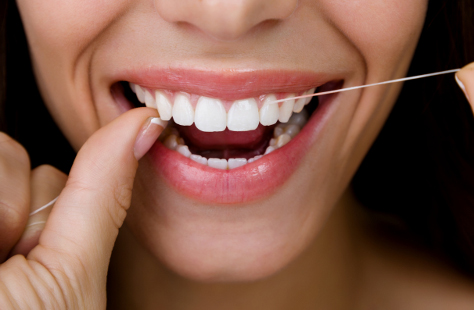Concerned about your gums in pregnancy? Here’s what you need to know
If your oral health is affected during pregnancy, there are some things you can try to ease the symptoms, oral health experts at Zendium offer these handy tips

Pregnancy is an amazing time but as your body adapts to growing your baby, it can take its toll on your body and pregnancy symptoms are different for everyone. For some, pregnancy can cause gum problems, often in the form of bleeding gums. If this is you, it’s important to take a few extra steps to protect your gums during this time. Oral health experts Zendium offer this helpful advice on taking extra care of your oral health during pregnancy.
Changes in hormone levels during pregnancy can cause your gums to be more sensitive to plaque, which could result in gum problems. The balance of good and bad bacteria in your mouth can also be affected during your nine months of pregnancy.
Here's a quick guide on how to help gum problems during pregnancy:
Visit your dentist
It is important to go for regular check-ups with your dentist and particularly during pregnancy. Aim to have at least one regular dental review during your pregnancy and let your dentist know that you are pregnant so they can be vigilant for any pregnancy-related oral health complications. Book further appointments if you experience oral health symptoms at any time. You're entitled to free NHS dental treatment if you're pregnant when you start your treatment. To get free NHS dental treatment, you must have:
- a MATB1 certificate issued by your midwife or GP
- a valid prescription maternity exemption certificate (MatEx)
Use a mild toothpaste
Using a mild toothpaste is recommended for pregnant women, Zendium’s formula has a mild and pleasant taste, it is inoffensive to those struggling with morning sickness and an aversion to strong tastes. It is also clinically proven to improve gum health*. Zendium’s prebiotic benefit promotes good bacteria and reduces bad bacteria**, designed to work in harmony with your mouth and strengthening its natural defences. Zendium is an SLS free toothpaste, (SLS stands for sodium lauryl sulfate – a chemical compound that functions as a foaming agent in many personal care products. It's largely responsible for the foam created in toothpastes, shampoos) clinically proven to be 4 times kinder than a regular toothpaste with SLS***.
Use a soft toothbrush and check your brushing technique
Brushing too vigorously, or with a toothbrush with hard bristles, can irritate your gums, particularly if they are already sensitive or if you are experiencing bleeding gums in pregnancy. Choose a toothbrush with soft bristles and ask your dentist to give you some feedback on your brushing technique to ensure you clean the gums well without applying too much pressure. The Zendium toothbrush has a small round head that cleans even the hard-to-reach areas and the extra-soft bristles are gentle on your gums.
Brush, floss, and use mouthwash
When you’re pregnant, it’s important to continue with regular brushing (at least twice a day) and daily flossing. Using a mouthwash can help your mouth feel fresh and less dry, especially if you use an alcohol-free and SLS-free one such as Zendium’s mouthwash.
Look out for any changes in your oral health
When you’re pregnant, it’s important to be vigilant of any changes in your mouth, teeth, and gums. Have a quick look once a day when you are brushing your teeth for signs of inflammation or bleeding, and if you notice any changes, make an appointment for a dental check-up.
Following these easy steps and maintaining good oral hygiene, can help you protect your oral heath during your pregnancy and if any symptoms concern you, do speak to a trusted healthcare professional.
*Refers to a 13 week gum health clinical study, China 2019 (n=109)
**Refers to the gum health and gum problems associated bacterial species in dental plaque which changed significantly over a 14-week clinical study with 102 subjects.
*** Compared to a toothpaste with SLS, 30 mins after use